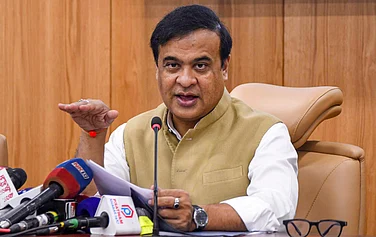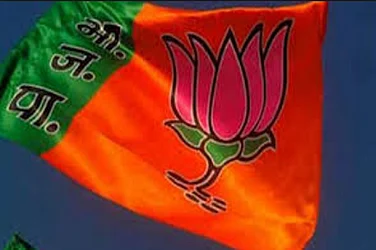WHILE chief minister Chandrababu Naidu weaves his brand of cyber magic around Hyderabad, a 100 km away from the capital a different kind of information revolution is unfolding. Courtesy the voluntary outfit Deccan Development Society (dds), which has adopted 83 villages of the Zaheerabad mandal in Medak district. In its quest to empower the 2,000 Dalit families here, it has gone beyond routine literacy programmes and armed tribal women with new tools of communication—to begin with, the video camera.
Says P.V. Satheesh, the 54-year-old founder of dds and a former trained producer of Doordarshan: "Literacy has become a Holy Grail in the world of development; development groups suffer a feeling of inadequacy if they're not pursuing literacy programmes." People have a natural instinct in most development activity, be it forestry, fisheries or organic farming, and require only additional help in the form of technology. Convinced that literacy is only a partial aid for those who have a powerful aural and visual feel. dds is training poor and illiterate Dalit women as first-generation videographers.
In a series of successful four-day workshops last year, which the Unesco cleared under its 'Learning Without Frontiers' scheme, trainees in the 16-35 age group were taught the basics of videography. The idea was to familiarise the participants with the workings of television, acquaint them with the handling of a video camera and teach them to edit their shots—in short to create their own visual stories. Lasting over 30 days, the workshops were conducted by Satheesh himself, along with Vijendra Patil—a cameraman-producer with varied experience in training and production—and Yesu, an 18-year-old Dalit youth from Pastapur village who had worked as an apprentice with a Pune-based video production house.
So successful was the effort that Unesco sponsored two of the trainees, Masani Chinna Narsamma (20) and Middalori Kavita (18) from Pastapur village and sent them to London this January where they visited the Birmingham Palace and met the Queen. It was an overwhelming experience for both even as they shyly admit, "We didn't know what to say." But it was a delightful moment when she walked towards them and asked how they felt. "We said we were happy. She smiled and walked away and we shed uncontrollable tears of joy."
Joy indeed is what the dds has brought into the lives of these women. Kavita had run away from home when her foster parents had threatened to marry her off. Today she's willing to "let the outside world know about our problems". Adds Narsamma, who has become adept at handling a digital camera: "We can better communicate with people of other sanghams without depending on anyone anymore."
The training-cum-learning process—such as the handling of a video camcorder, using a camera tripod, shooting image sizes, understanding camera frame and simple principles of composition, techniques of sound recording and executing an edit on vhs system—was itself videographed and given a rough edit. At the end of the workshops, the Dalit women filmed one aspect of their sangham work, namely the pre-schooling of their children and their significance to their lives.Together, the two films highlighted the capacities, experience and communication skills of village women as it helped trainees discover their own. Says 18-year-old Hummapur Lakshmi: "Sometimes professionals are too busy to film what we want them to. Now we can do our own recording and give it to them."
In fact, a footage of their shot of last October's unprecedented rains which damaged crops in their village was used by a private satellite channel and Doordarshan. "This has given the newly-trained Dalit women immense confidence of using their talent," says Ruckmini Rao, chairperson of dds. "It is our endeavour to fulfil their dream as Doordarshan has promised a slot for women's programmes, while Eenadu TV has agreed in principle to provide a monthly five-minute slot for stories on organic farming." Anticipating all this, the dds office at Pastapur has already acquired an editing desk and recording equipment.
According to Rao, who has earlier worked with the autonomous women's group Saheli, a comprehensive survey indicates that instead of forcing literacy down the throats of rural adults, the video can be used as a very effective medium of expression. Realising this potential of videography as a mode of exchange of ideas/thoughts for rural communities, the dds has chosen to recommend support and encouragement to the usage of simple video by rural communities in developmental communication. And given the women's expert handling of video cameras in just over a month, there is no doubt that it can henceforth be increasingly used as a tool for direct communication between communities and governments, policy-makers, founders and international development organisations.
Admits Satheesh: "The very justification for Unesco's 'Learning Without Frontiers' programme had been to look at adult learning, particularly by women, with a special approach of its own." And this one's certainly worked. The obvious consequence should be for the national and local networks as also commercial networks with the help of private satellite channels to project their news stories to a wide audience. So that these non-literate women are able to narrate their own stories, in their own words, focusing on issues that concern them.
What next for dds, after videography? The organisation is already working out viable options with others for creating food security, establishing control over easily available natural resources like seeds, soil and water and developing institutions for sustainable management. However, radio is the other medium dds is trying to explore and experiment with. It's thought of as a 'natural' and potential medium for rural women equipped with extraordinary oral narrative skills.
"We feel excited about the possibilities of using it," says Rao. The dds is already in the process of building a low-cost radio station which could be operational very soon. Of course, only after the passage of the new Prasar Bharati bill. It's being designed as an FM station capable of working on audio-cassette technology. It will have a 100 watts transmitter with a radius of 30 km.
This station will be a constituent of the Unesco's 'Women Speak to Women' programme, which the dds is supporting in its endeavour to ensure empowerment to the fairer sex. The station, once it becomes operational, will benefit 75 villages. They themselves will lend it form and content and make radio a tool for horizontal communication with their community as well as with the outside world. Given their inherent abilities to creatively express their thoughts, their knowledge and vision for the future is only likely to grow through sound and image. Says Rao: "We feel we've made a major breakthrough in providing technology to educate deprived rural communities, and for enlightening the outside world about what communities are capable of." Chandrababu naidu should be hearing of them soon.






















